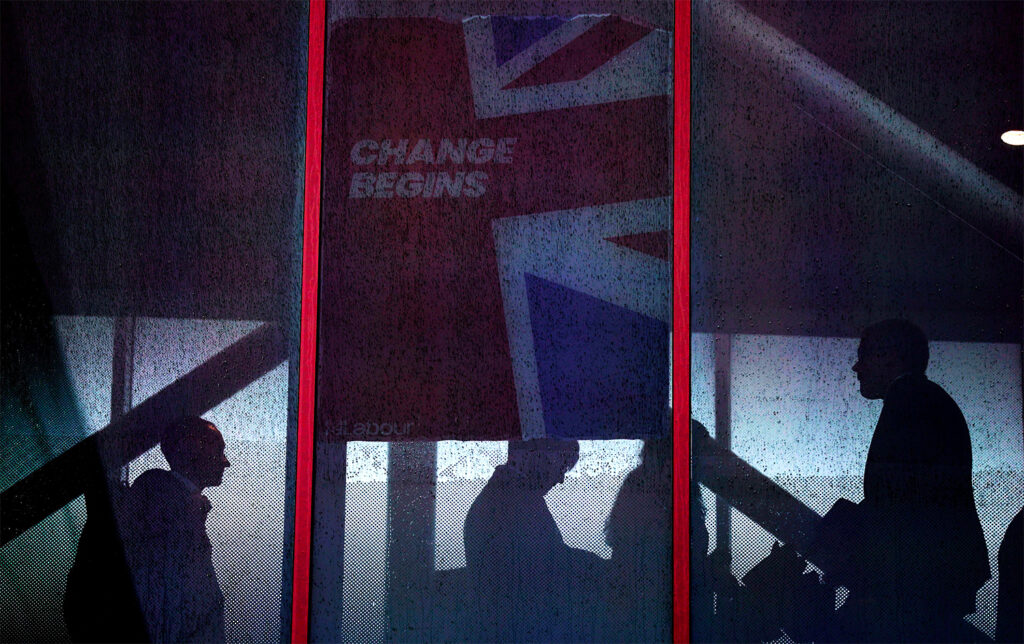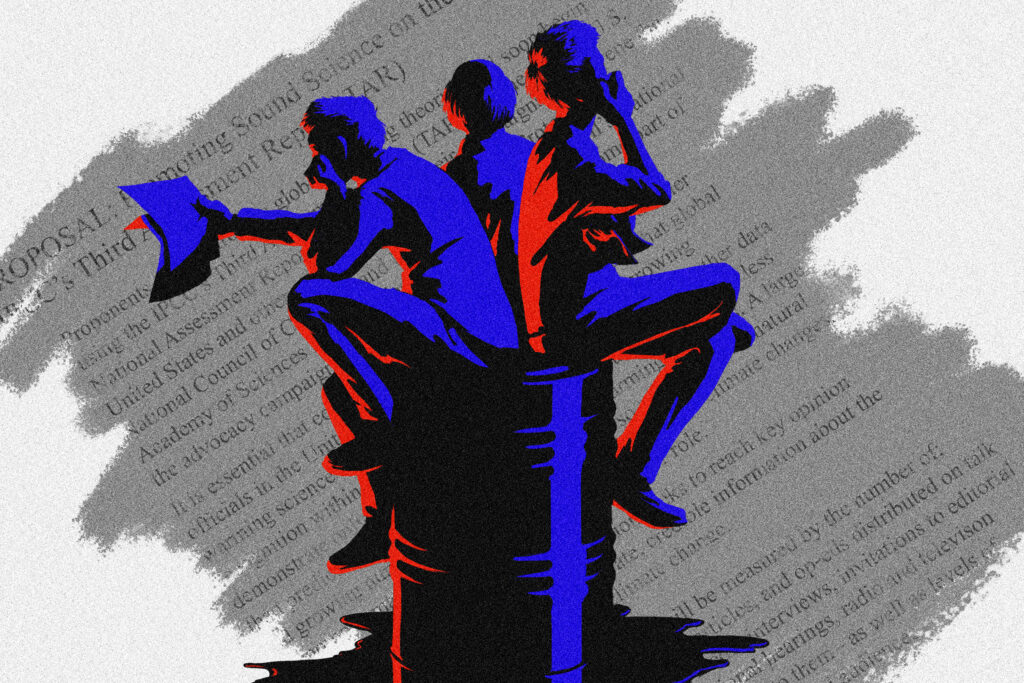Environmental victories are rare. Even with mounting scientific evidence that reckless human activities are endangering our future, politicians and corporations have continued to run roughshod over the planet, destroying the very home that sustains our lives.
For too long, environmentalists were seen as a small part of a political movement that focused on an issue that most Americans greeted with a yawn. After all, the most damning climate science has emerged at a time when the threat of global terrorism and economic downturns were grabbing all of the headlines.
But 2015 signaled a change for the environmental movement.
Thanks to the power of independent and social media outlets, climate change and environmental issues took center stage this year. Discussions about terrorism and the economy finally took the environment into account. Climate change deniers were largely ignored outside their echo chamber, and even the corporate-controlled media was forced to acknowledge climate change as U.S. Presidential candidates, the Paris climate talks, and the Pope’s climate change encyclical all brought this incredibly important issue to the mainstream forefront.
So here are some of the biggest environmental victories that the world witnessed in 2015:
Paris Climate Agreement
The biggest environmental news of the year came from the Paris COP21 climate talks. As DeSmogBlog’s Brendan DeMelle wrote:
World leaders reached an historic agreement in Paris, capping off the COP21 climate talks with a unanimous deal among 195 countries to curb global warming pollution and hasten the clean energy transition. The gavel just fell on the Paris Agreement, and it’s time to celebrate.
Is it enough to please everyone? No. Will people continue to suffer from climate-charged extreme weather events? Yes. But today is a welcome change from previous summit failures.
It’s a big deal whenever 195 countries agree on anything, and that’s exactly what’s happened here today. 195 nations, from the richest to the poorest, agreed to pave the road to the end of fossil fuels.
In its most basic form, the Paris agreement will compel the largest polluters on the planet to reduce their emissions beyond the 2020 goals previously set. It will also allow for the re-evaluation of these targets as new science emerges in the coming years.
The most important aspect of the agreement is the fund that will be created to help developing nations — those with relatively low emissions that are feeling the effects of a warming climate stronger than anyone else — deal with the immediate threats of climate disruption.
The Death Of Keystone XL – For Now
This one was a surprise that few saw coming, but in a move several months ago, President Obama announced that the Keystone XL pipeline would not cross the U.S.-Canada border on his watch.
While it is true that portions of the pipeline had already been laid, and some continue to be laid today, the critical Keystone XL project is currently scrapped.
This particular victory is a very sweet one for environmentalists, as Brendan again pointed out:
At long last, President Obama today rejected the heavily-protested, scandal-ridden Keystone XL tar sands pipeline proposed by TransCanada. Congratulations to everyone who raised their voice, got arrested, spent hours researching the many lobbying scandals (like we did here on DeSmog), and otherwise helped to usher in the first time that a fossil fuel infrastructure project was defeated based on its global warming pollution impact.
I recall the many conversations I had several years ago — with people far savvier about Washington DC politics than I — who thought Keystone XL was a done deal. And TransCanada surely bet its corporate existence on the success of its proposal for the border-crossing pipeline that would’ve vastly amplified the volume of tar sands crude flowing south to the Gulf Coast refineries, much of it destined for export.
President Obama had remained (allegedly) on the fence about this issue, but given the amount of time he spent deliberating and the sheer amount of corporate money being thrown around by lobbyists and the industry, it seemed likely that if the issue ever made it to his desk, Obama would give it his stamp of approval.
But thanks to the efforts of activists, this issue is currently dead. The only possible hope of being revived is if a power shift occurs in the United States in 2016.
And speaking of power shifts…
Canada Says Goodbye To Harper
Canada might have a reputation as America’s calmer, more sensible (and more polite) neighbor to the North, but their government has been just as influenced by fossil fuel interests as ours. At least, that was the case up until a few months ago.
DeSmog Canada’s Emma Gilchrist reported the following after Canada’s election:
Nine and a half years. That’s how long Stephen Harper was prime minister of Canada — a long haul for environmentalists, who were all but shut out of Ottawa and often antagonized by the federal government.
Now that Justin Trudeau and the Liberals have taken the helm, advocates have high hopes for a course correction on the environment and energy files. But after nearly a decade of working under hostile conditions, environmentalists need to make a course correction of their own if they want to effectively influence public policy, experts say.
“If I was running a large ENGO and my file was climate, it’s a new day,” said Allan Northcott, vice-president of Max Bell Foundation, which runs the Public Policy Training Institute to train non-profit leaders in how to effectively advocate for policy changes.
“The opportunity is different, so it’s going to require a different plan, a different strategy.”…
Many environmental groups have spent a decade building up their “outside game,” doing things like gathering petitions and organizing protests. But now that government is willing to meet with environmentalists, the door is opened to influencing elected leaders and public servants directly, through an “inside game.”
This new context requires a shift in strategy. Essentially, the outside game needs to morph to complement the development of an effective inside game.
For the first time in nearly a decade, Canadians are excited about the prospect of saving their environment because they finally have leaders who understand that climate change really is a threat. This election signaled a major shift for the country in how they will handle that threat in the future.
Exxon’s Climate Doublespeak Was Exposed
Exxon has been no stranger to damning reports coming out about the company’s practices. Whether it was bribing scientists or covering up refinery dangers, the company always seems embroiled in some form of scandal. But the #ExxonKnew bombshell that emerged in 2015 will be one that changes the company, and the world, forever.
As we learned this year, the world’s largest independent oil company not only knew that climate change was real back in the 1970’s, but it actively covered up this information for nearly 40 years. Rather than risk losing money, the company decided to needlessly put lives at risk.
The backlash from the public was huge, and DeSmog’s Steve Horn covered the issue:
…A slew of advocacy groups have delivered 360,000 petition signatures to the U.S. Department of Justice, calling for a probe of petrochemical industry giant ExxonMobil’s history of funding climate change denial despite what the company knew about climate science.
The groups ranging from 350.org, Food and Watch Watch, Climate Parents, Moms Clean Air Force, The Nation, Sierra Club and others have asked DOJ to investigate what ExxonMobil knew about climate change and when the company knew it, juxtaposing that insider knowledge, exposed by both InsideClimate News and The Los Angeles Times, with the climate change denial campaign it funded both in the past and through to the present.
“That’s right: decades before climate change became a hotly debated political issue, the biggest oil company in the world was doing cutting-edge research into just what was causing it and how dangerous it might be,” reads the petition, pointing back to the research the company did on climate change dating back to the 1970’s and 1980’s.
“But Exxon chose to protect their profits over the planet, and proceeded to cover up their findings for nearly forty years.,” it continues. “They hid the work of their own scientists, while financing an elaborate network of climate-denial think tanks, organizations, and politicians.”
After the news broke, Exxon went into immediate crisis mode, launching a slick new PR campaign telling the public that it was investing in renewable energies and biofuels. The oil giant also issued a statement telling the government that climate change is a very real threat that needs to be addressed at the federal level. Unfortunately for Exxon, all of this is too little, too late. Efforts to hold Exxon — and the entire fossil fuel industry — accountable for this doublespeak will continue to advance in 2016.
The Pope Embraces Climate Science
Pope Francis has managed to break the mold with regards to what we typically see from religious leaders. Rather than castigating the public for not following some of the Bible’s more ludicrous statements, Pope Francis is teaching the world to lead by example, to take care of the less fortunate, and to protect the environment — which is God’s greatest gift to mankind.
DeSmog’s Mike Gaworecki explained:
Pope Francis has released his long awaited encyclical, or teaching document, on climate justice and the environment, and it flies in the face of everything climate deniers stand for.
The encyclical is officially called “Laudato Si (Be Praised), On the Care of Our Common Home,” and it makes a compelling case for humanity’s moral responsibility to “protect our common home” by tackling the root causes of two of the greatest interlinked global crises of our time: climate change and poverty.
“[T]he earth herself, burdened and laid waste, is among the most abandoned and maltreated of our poor,” Pope Francis writes. Echoing his earlier critique of capitalism and inequality, the Pope links the pollution and waste degrading our environment directly to our “throwaway culture” that, unlike nature, does not seek to reuse and recycle every resource as a valuable constituent of the circle of life.
“We have not yet managed to adopt a circular model of production capable of preserving resources for present and future generations,” the Pope writes. He faults this mode of consumption for creating global warming, and concludes: “Humanity is called to recognize the need for changes of lifestyle, production and consumption, in order to combat this warming or at least the human causes which produce or aggravate it.”
The Pope unequivocally embraces the science showing mankind is responsible for global warming:
“A number of scientific studies indicate that most global warming in recent decades is due to the great concentration of greenhouse gases (carbon dioxide, methane, nitrogen oxides and others) released mainly as a result of human activity.”
He specifically calls for policies to change the way we power human society:
“There is an urgent need to develop policies so that, in the next few years, the emission of carbon dioxide and other highly polluting gases can be drastically reduced, for example, substituting for fossil fuels and developing sources of renewable energy.”
The Arctic Is Safer From Oil Exploitation
In another display of just how effective activism is, President Obama announced in October that he would cancel a massive oil lease sale for Arctic drilling.
In addition to cancelling the lease sale, the administration also denied requests by other companies currently drilling in the Arctic to extend those existing leases.
Again, this action came after the public became outraged at the administration’s decision to allow oil companies — Shell in particular — to exploit the fragile Arctic environment in the pursuit of fossil fuel.
When coupled with the Keystone XL victory, it becomes obvious that the American public really does still hold some power over our government, and that power will continued to be exercised in this arena.
Voices Got Louder
One of the most remarkable shifts in 2015 occurred in the media coverage of climate change. Yes, the media still does a poor job of covering the issue, even as 2015 broke records as the warmest year in the history of record-keeping, but the voices talking about climate disruption became so loud that the media could no longer ignore them.
Prominent “celebrity” scientists like Bill Nye and Neil deGrasse Tyson have become household names, and neither wasted any time in 2015 to get the message about climate change out to the public. Though not climate scientists by trade, their celebrity status elevated the conversation to a level that makes it impossible to ignore. And their broad appeal has brought the issue to a new audience — as did the TV series The Years of Living Dangerously with its suite of celebrity hosts.
But it wasn’t just scientists who raised their voices this year – President Obama also decided it was time to speak out.
Towards the end of the year, coinciding with the Paris climate talks, President Obama became increasingly angry with the Republican Party for being the only major Party in the developed world that actively denies the science of climate change. During the summer, President Obama aggressively defended the EPA’s new emissions rules for power plants amid Republican opposition, standing by his administration’s signature policy to address climate change.
While President Obama can’t really be classified as an enemy of the fossil fuel industry, he’s clearly trying to make up for lost time as his presidency comes to an end, and that is a very positive development after more than 6 years of remaining timid on the issue.
Work To Be Done
As with any victory, it’s important to look towards the future with cautious optimism.
The United States will have a very heated presidential election in 2016, with one Party (Republicans) firmly denying the science of climate change and refusing to act on the issue. A Party shift in the Executive Branch could spell disaster for the environment, and we will be monitoring the developments in this area very closely.
But for now, we can all celebrate the victories of 2015 and prepare for even more battles — and wins — in 2016.
Subscribe to our newsletter
Stay up to date with DeSmog news and alerts







